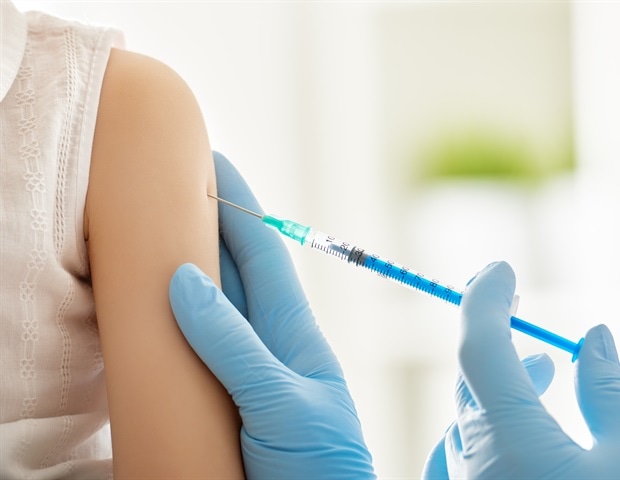A multi-institutional team led by Weill Cornell Medicine investigators has been awarded a five-year, $20.8 million grant from the National Institute of Allergy and Infectious Diseases, part of the National Institutes of Health, for advanced preclinical development of a promising experimental HIV vaccine.
A successful vaccine to prevent new HIV infections would be a major public health breakthrough. About 1.3 million people acquired HIV in 2024, according to the World Health Organization, and at the end of that year an estimated 41 million people were living with the virus. Medication can keep individuals healthy but must be taken for a lifetime.
Prior studies of the new experimental vaccine suggest that it is safe and may be effective when administered early in life. In the work funded by the grant, the researchers will optimize the vaccine in preparation for clinical trials in infants, in parts of the world with high HIV burden.
“The ability to induce effective immunity, in childhood, against a broad set of HIV variants could revolutionize HIV prevention efforts and ultimately bring this decades-long pandemic to an end,” said lead investigator Dr. Sallie Permar, chair of the Department of Pediatrics and the Nancy C. Paduano Professor in Pediatrics at Weill Cornell Medicine and pediatrician-in-chief at NewYork-Presbyterian Komansky Children’s Hospital of Children’s Hospital of New York.
The main co-investigator of the project is Dr. Kristina De Paris, a professor in the Department of Microbiology and Immunology at UNC School of Medicine.
Effectively immunizing against HIV has been a seemingly insurmountable challenge ever since the virus was identified as the cause of AIDS in 1983. The HIV proteins that are most accessible to the immune system mutate rapidly, essentially leading the immune response on a fruitless and unending chase. HIV does have relatively non-varying structures that it uses to gain entry into host cells, but these are hard for the immune system to “see,” in part because the virus shields them with antibody-resistant sugar molecules called glycans. Studies of people with HIV have found rare antibodies that can nevertheless fasten onto HIV’s vulnerable sites, thus blocking the virus’s infectivity across a broad set of strains. But a vaccine that can elicit these “broadly neutralizing” antibodies (bnAbs) in sufficient quantities has been elusive.
Currently one of the most promising HIV vaccine strategies is to use engineered versions of Env, HIV’s outer-envelope protein complex. The Env complex, which is critical for HIV’s infectivity, assembles on the viral surface in a delicate, three-part “trimer” structure. In research spanning the last quarter-century and spearheaded largely by Dr. John Moore, professor of microbiology and immunology at Weill Cornell Medicine, Dr. Rogier Sanders, now a professor at Amsterdam UMC and an adjunct associate professor of research in microbiology and immunology at Weill Cornell Medicine and Dr. Ian Wilson and Dr. Andrew Ward at Scripps Research, scientists have managed to engineer versions of the Env trimer that can exist on their own without falling apart, while retaining the ability to elicit bnAbs. The experimental vaccine that Dr. Permar and her colleagues will be testing is based on the most recently optimized trimer structure, known as the BG505 GT1.1 SOSIP trimer. It is designed to be administered in a series of inoculations that, over time, direct the antibody response toward the production of bnAbs.
Traditionally vaccines are tested in children after they have been proven effective in adults. However, initial clinical trials in adults and preclinical work in a rhesus macaque model of HIV suggest that the Env trimer vaccine can elicit useful quantities of bnAbs only in young immune systems.
This is good news for the potential success of the vaccine, as the number of boosts and length of time needed to achieve an effective anti-HIV response make it optimal to place an HIV vaccine within the childhood vaccine schedule.”
Dr. Sallie Permar, chair of the Department of Pediatrics and the Nancy C. Paduano Professor in Pediatrics, Weill Cornell Medicine
“It may be that our only opportunity for an effective HIV vaccine is to test it as a childhood vaccine,” she added.
The overarching goal of the new research program is therefore to advance the work that has been done on the Env trimer vaccine, to help pave the way for initial clinical trials of it as a pediatric vaccine.
“We’ll be optimizing the dose of the Env trimer protein complex and the general immune-boosting ‘adjuvant’ compound that we use in vaccines, as well as the number and schedule of inoculations,” said Dr. Ashley Nelson, an assistant professor in the department of pediatrics at Weill Cornell Medicine.
A sub-project headed by Dr. Genevieve Fouda, professor of pediatrics at Weill Cornell Medicine, will examine how other childhood immunizations might alter the effectiveness of the experimental HIV vaccine.
“In places like sub-Saharan Africa where the rate of vertical HIV transmission is high, newborns could be protected by passive immunization with anti-HIV bnAbs during breastfeeding and would concurrently be given standard childhood vaccines,” Dr. Fouda said. “We will study whether these have any interaction with the experimental vaccine.”
Dr. De Paris will lead the immune analytics sub-project, in which Dr. Moore and his team will produce the BG505 GT1.1 SOSIP trimer and evaluate the antibody responses it elicits.” The vaccine tests, in rhesus macaques, will be conducted by Dr. Koen Van Rompay, core scientist in the California National Primate Research Center at UC Davis.
